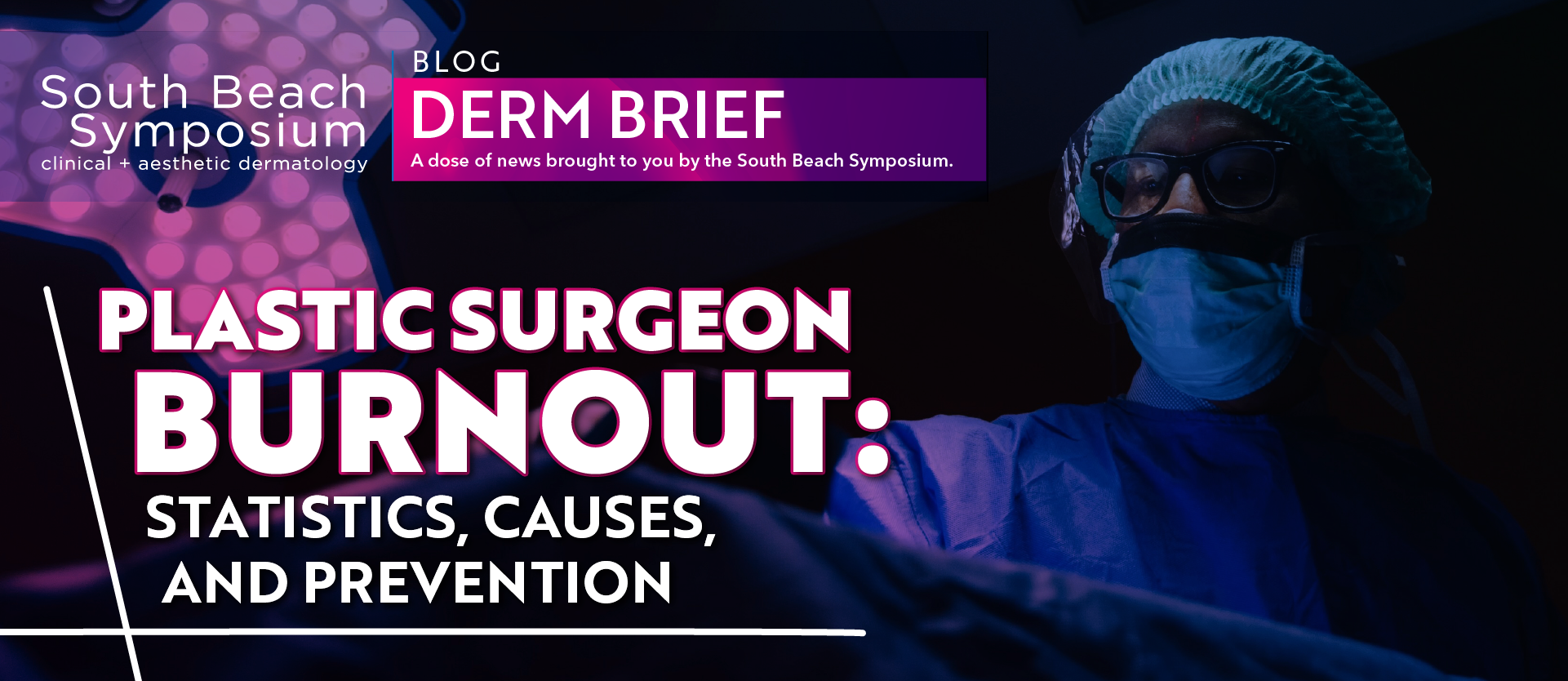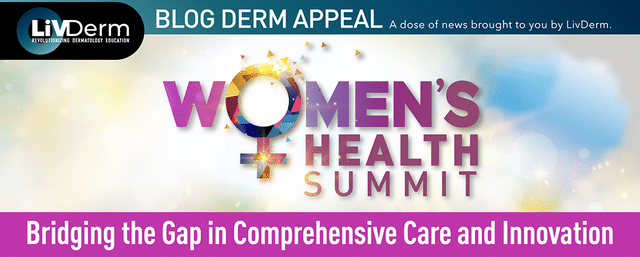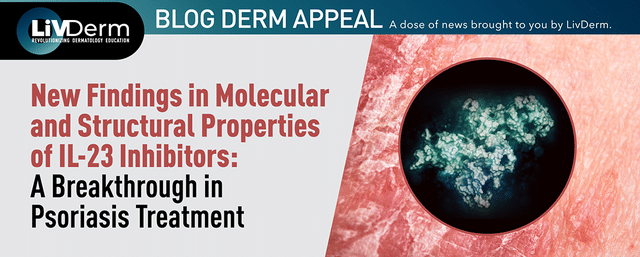Burnout, the state of physical and mental exhaustion associated with overworking, is at the forefront of concern among the healthcare community. Reports of burnout have permeated medical literature recently, with an emphasis on its incidence in the surgical profession. Nearly half of the American physician population reports experiencing burnout from the high-pressure healthcare industry, with critical care and emergency medical workers ranking highest.
A recently published Medscape Report evaluated the reasons behind the high rates of burnout in plastic surgeons, as well as their general happiness and lifestyle choices. According to the 2019 Plastic Surgeon Lifestyle, Happiness and Burnout Report, an alarming 36% of surveyed plastic surgeons suffered from burnout. As symptoms of severe burnout can include substance abuse, compromised patient care, and poor job performance this condition can have potentially fatal repercussions to surgeons and those around them.
Characterized by mental and physical exhaustion, the most severe and conclusive symptoms of burnout are emotional exhaustion, depersonalization, and reduced personal accomplishment. A recent study by the American College of Surgeons revealed that up to 40% of U.S. surgeons exhibit signs of burnout. Of the 5,942 surgeons evaluated, 28.5% were plastic surgeons who revealed an approximate rate of 25% decreased quality-of-life score than the U.S. norm. In addition to low career satisfaction and increased work-life balance conflicts, plastic surgeons suffering from burnout have a doubled risk of medical errors and impairment.
2019 Medscape Report Findings
Plastic surgeons rank much higher in overall happiness rates than other specialists; 41% of survey participants responded that they were very or extremely happy at work. The statistics for plastic surgeon satisfaction and quality of life skew positive, with more than half reporting being happy outside of work.
The majority of plastic surgeons are married or in a committed relationship, with only 7% single. Of those married, 84% report their marriage as being good or very good, which places them at the top of the marital satisfaction scale.
Additionally, plastic surgeons report much higher levels of self-esteem – 73% responded with high or very high – than other specialists, such as oncologists and infectious disease specialists which ranked at 48% and 47% respectively.
Substantial vacation time was reported among plastic surgeons, with nearly a third of the survey participants taking between 3 and 4 weeks off per year, and 18% taking 5 weeks or more.
Lifestyle factors such as exercise and alcohol consumption can contribute significantly to the onset of burnout. Over a third of plastic surgeons were found to exercise at least 3 times a week and averaged less than one drink per week.
While the burnout rates of plastic surgeons are comparatively low, the phenomenon affects the group strongly nonetheless. Colloquial and clinical depression was reported at 11% and 4% respectively, with 14% admitting to having suicidal thoughts. Of the surveyed population, 1% reported having attempted suicide, and the staggering majority (68%) has not sought help.
What Leads to Burnout?
Many factors can contribute to burnout including long hours, lack of respect from employers and an emphasis on profits over patients. However, the leading causes of burnout in plastic surgeons are an overload of bureaucratic/administrative tasks, insufficient compensation, government regulations and a lack of respect from patients. Only 25% of survey participants reported long work hours as a contributing cause of burnout.
Burnout does not only stem from work-related causes such as overly demanding expectations, a high-pressure environment or monotonous work, it can also be a result of lifestyle habits and personality traits. Not getting enough sleep, taking on too many responsibilities, and working too much without enough time for socializing and relaxing can lead to burnout. Additionally, people with perfectionistic tendencies, high-achieving Type A personalities, and pessimistic outlooks are at an increased risk of experiencing burnout.
Coping
Exercise was the leading method of coping with burnout among plastic surgeons, with over half of the participants reporting regular exercise. Seeking support from family and close friends was the second most prevalent coping method, followed by isolation, and sleep with respective rates of 38% and 34%.
Increasingly, hospitals and healthcare organizations are implementing wellness programs aimed at reducing stress and burnout rates although not all surgeons are willing to participate. The Medscape report showed results that skewed toward reluctance and unlikeliness to participate in wellness programs, with 29% of plastic surgeons responding unlikely.
- Dealing with the effects of stress and burnouts can be difficult – limited time, resources, and accessibility may contribute to choosing unhealthy coping methods. Isolation, substance abuse, and binge eating are just a few potentially destructive coping behaviors reported by plastic surgeons. While they are favored as a source of instant gratification, these methods will not improve burnout outcomes in the long-term. Sustainable and efficacious, the coping measures listed below can inspire better outcomes:
- Taking a break from work (the longer, the better)
- Finding a way of releasing frustration (exercise, hobbies, sports)
- Relieving pressure by sharing your struggles with family and friends
- Nourishing your creative side (try something new, start a fun project)
- Setting aside relaxation time for yoga, meditation and deep breathing
- Being more sociable and developing friendships with coworkers
- Improving lifestyle habits such as sleep, proper nutrition and regular exercise
Prevention
The onset of burnout is a gradual process and can creep up on physicians of all specialties. Symptoms may be subtle at first, such as increased fatigue, lowered immunity, headaches and changes in sleep habits. Emotional signs may include a sense of failure or self-doubt, feeling helpless and defeated, detachment and a loss of motivation, while behavioral symptoms range from isolation and withdrawal to procrastination and skipping work. In order to mitigate the detrimental outcomes of burnout syndrome, it is important to address and treat these early signs before they spiral out of control.
















